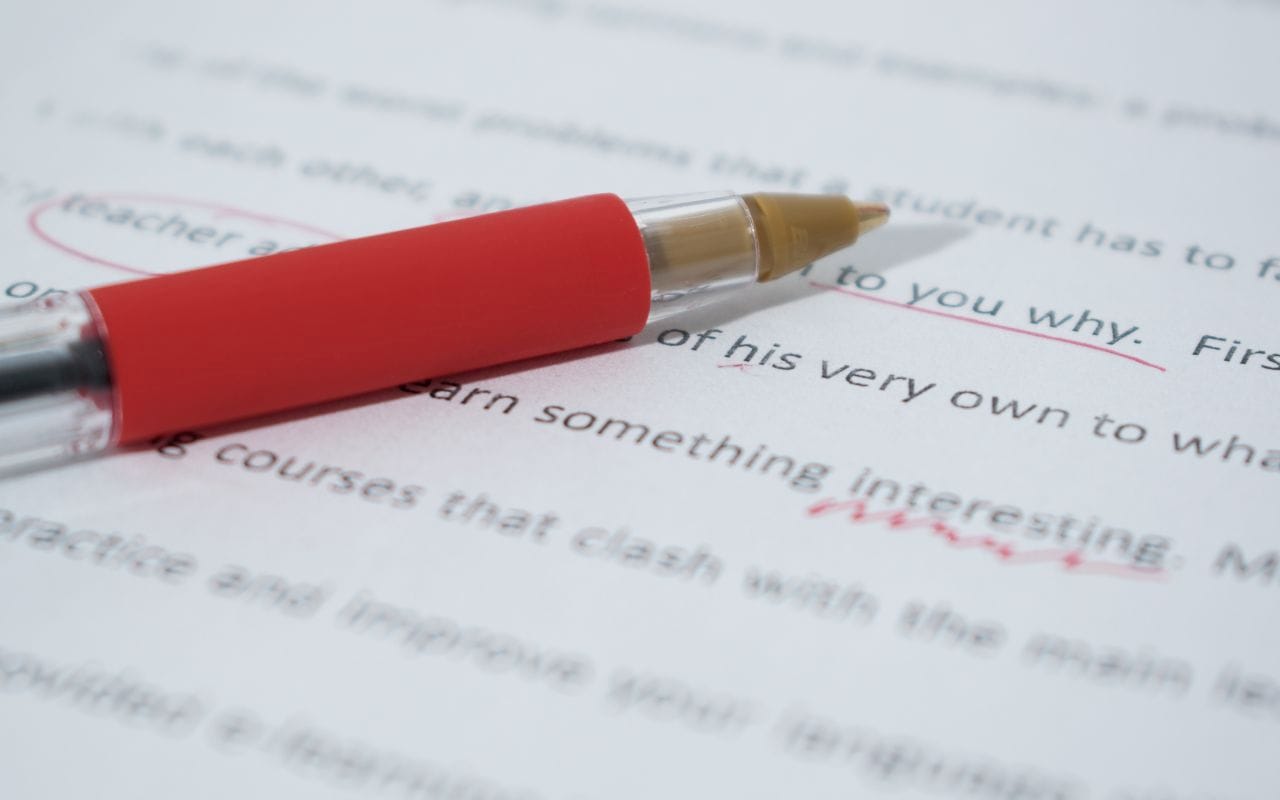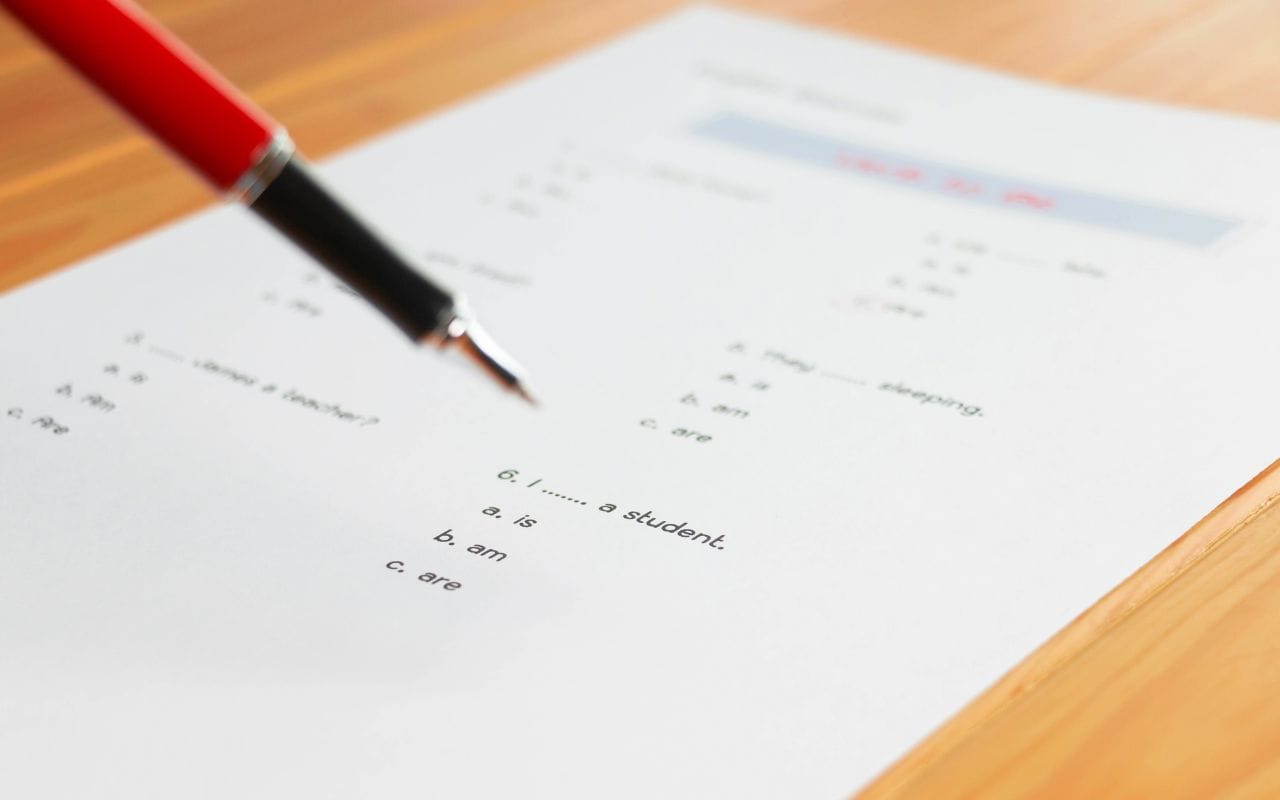Access thousands of exclusive scholarships
for free
Writing transcends all parts of our lives. Whether that be as simple as sending a text or writing an essay to get into your dream school, grammar is critical in ensuring that the person receiving your message understands it in the way it was intended. When a comma splice occurs, it can significantly ruin that effect.
Grammar mistakes are an all-too-common occurrence, even among experienced writers. Given that it's one of the hardest languages to learn, English leaves room for many to make errors. One such mistake is the comma splice, which often creeps into writing unnoticed. Recognizing this error is essential for producing polished and professional prose.
If you have your own personal experience with making this mistake before, it's okay! Mastering grammar is an ongoing process and takes time to perfect. As language evolves and conventions shift, staying on top of grammar rules and best practices is crucial for effective communication. By honing grammar skills, writers can elevate their work to new heights, captivating readers and leaving a lasting impact with their words.
Commas are seemingly innocuous little symbols, yet their misuse can completely shift the rhythm of your sentence. One such misuse is the comma splice. For those unfamiliar with the term, I will explain this in much more detail to ensure that this doesn't happen to you. This grammatical error often goes unnoticed, but its impact on writing can be detrimental to ensuring clarity and proper structure.
Gearing up for college any time soon? Be proactive and create an account on Bold.org to begin applying for scholarships today.
The Role of Commas in the English Language
Commas serve several purposes in English. Their functions are to separate items in a list, set off introductory phrases or clauses, indicate pauses in speech, and separate independent clauses when joined by coordinating conjunctions. A key point to remember is that commas should not be used to join independent clauses without the appropriate coordinating conjunction.
Furthermore, commas are also incorporated to provide a sense of rhythm and flow in writing. Commas are strategically placed so that writers can control the pacing of their sentences, guiding readers through the text with precision and clarity. This attention to detail not only enhances readability but also adds a layer of sophistication to the writing, showcasing the author's mastery of language.

Defining a Comma Splice
In simple terms, a comma splice is the act of joining two independent clauses with only a comma without the appropriate coordinating conjunction. Now you are probably wondering, well, what's an independent clause?
An independent clause is a fundamental building block of a sentence, possessing the necessary elements to stand alone as a complete thought. It contains a subject performing an action (the verb) and expresses a clear idea. When two independent clauses are erroneously linked by a mere comma, the result is a comma splice, a common error that can impact the clarity and flow of your writing.
Example of an independent clause: "I went to the store."
Get Matched to Thousands of Scholarships
Create your Bold.org profile to access thousands of exclusive scholarships, available only on Bold.org.
Create Free ProfileIdentifying a Comma Splice in a Sentence
Independent clauses are self-contained units that can function as complete sentences on their own. If you were to add a period at the end of the sentence, it would be expected if not encouraged.
Mistakenly joining two independent clauses with a comma results in a comma splice, which can cause abrupt pauses in a sentence. Regardless of whether or not these standalone thoughts relate to each other, their cohesion doesn't necessarily fit. This error often leads to confusion for the reader, as the lack of a proper conjunction fails to signal the relationship between the clauses, resulting in a disjointed sentence structure.
Example comma splice: "I went to the store, I bought some milk."
Corrected versions:
- "I went to the store. I bought some milk."
- "I went to the store; I bought some milk."
- "I went to the store, and I bought some milk."
The Difference Between a Comma Splice and a Coordinating Conjunction
A coordinating conjunction, such as "and," "but," or "or," is used to join two independent clauses. Understanding the distinction between a comma splice and a coordinating conjunction is essential for ensuring accurate punctuation. If one of these phrases is incorporated into the sentence, a comma should be used to separate the independent clauses. Without it, you get two complete sentences split by an unnecessary comma splice.
Familiarizing yourself with which phrases qualify as coordinating conjunctions will effectively elevate the coherence of your writing to prevent you from creating a run-on sentence. These conjunctions not only connect ideas seamlessly but also add depth and nuance to your sentences.

Comma Splices in Professional Writing
In professional writing, such as academic papers or business documents, you can't just exclusively focus on the content of your work because proper grammar can have a huge impact. Splices can jeopardize your credibility and professionalism. These errors can cast doubt on your ability to communicate effectively and may impact how your work is perceived by colleagues, superiors, or academic reviewers.
When crafting professional documents, it is essential to pay attention to small details like this to uphold the standards of excellence anticipated by those in higher positions. By demonstrating a professional grasp of your written communication, you can establish yourself as a competent and reliable communicator, enhancing your reputation and the impact of your written work.
Are you an aspiring writer? Maybe you're preparing for a grad app? Check out these writing scholarships to help you pay for college!
How to Correct a Comma Splice
If you have already used a comma to merge what could be a separate sentence with another - don't worry. We have all been there. Several easy methods can be employed to rectify this grammatical error.
Using a Period to Correct a Comma Splice
Typically, the best way to fix a comma splice is by replacing the comma with a period, and separating clauses into an entirely different complete sentence. This method provides a clean break between the ideas and ensures each thought receives its due attention.
I find that the best pieces of work have a rhythmic flow to their sentences by incorporating both short and long sentences. By utilizing a period to address a comma splice, you not only adhere to proper punctuation rules but also create a more structured and organized piece of writing. Each sentence can stand on its own, allowing the reader to digest the information in a clear and concise manner.
Employing a Semicolon to Fix a Comma Splice
Another method, that can be used in certain situations, is to use a replace the comma with a semi-colon. The semicolon serves as a stronger form of separation than a comma but still allows for a logical connection between the independent clauses. This solution can be particularly beneficial when the ideas expressed in the clauses are closely related.
When you opt for a semicolon to correct a comma splice, you demonstrate a nuanced understanding of punctuation and sentence structure. The use of a semicolon is strategic in the sense that it indicates a relationship between the two clauses while simultaneously maintaining a distinct boundary between them. This technique adds sophistication to your writing and showcases your ability to craft sentences that are both cohesive and coherent.

The Role of Conjunctions in Correcting Comma Splices
As we discussed prior, the importance of a subordinating conjunction can make all the difference in assessing whether it's a comma splice situation or not. Thus, another effective technique for rectifying a comma splice is to add one of these qualifying words after the comma.
By using either "and," "but," or "or," you can link the two independent clauses with a seamless transition, allowing for a smoother flow of ideas within your writing. These conjunctions serve as bridges that connect related thoughts or the second independent clause with the first, guiding the reader through your text with clarity and coherence. Mastering the art of using conjunctions to correct comma splices can greatly enhance the overall quality of your writing and elevate your communication skills.
Tips to Avoid Comma Splices
The good thing about grammar issues is that when you are aware of these structural issues, it's much easier to prevent them in the future. Adopting a proactive approach is crucial to steer clear of comma splices and maintain the integrity of your writing. Let's explore some valuable tips to help you avoid committing this grammatical offense.
Proofreading Strategies for Spotting Comma Splices
Proofreading is an essential step in the writing process, providing an opportunity to catch and correct any grammatical errors, including comma splices.
While proofreading, pay special attention to the structure of your sentences and ensure that independent clauses are appropriately connected. Take the time to read each sentence aloud, as this can help identify any awkward or incorrect pauses.
If you feel like you aren't catching any mistakes, then it can be helpful to ask a trusted friend or colleague to review your writing. Fresh eyes may catch any comma splices you may have possibly missed. Their feedback can provide valuable insights and help you refine your writing skills.
Utilizing Grammar Tools to Prevent Comma Splices
As technology advances, we have a wealth of resources to aid in our writing endeavors and identify mistakes we may have missed. Utilizing grammar tools, such as Grammarly, can provide valuable insights into proper punctuation usage. At the very least, they provide further support to guide you through the process.
These tools can help identify and rectify comma splices, ensuring your writing remains clear, concise, and free from unnecessary errors. These educational resources can deepen your understanding of grammar rules and equip you with the knowledge to prevent comma splices effectively.

Frequently Asked Questions About Grammar
Is grammar important in a college essay?
Grammar is crucial in college essays as it reflects your ability to communicate effectively and showcases your attention to detail. Proper grammar enhances the clarity and professionalism of your writing.
Should I use a formal or informal tone in my scholarship essay?
Scholarship essays typically require a formal tone to convey professionalism and seriousness of purpose. While some personal anecdotes or conversational elements may be appropriate depending on the essay prompt, maintaining a formal tone overall is advisable.
What if I make a grammar mistake in my college essay?
Making a grammar mistake on your college essay is not ideal, but it's not the end of the world either. Don't worry too much about it, if the application is already submitted - chances are that it won't make or break your application.
Have more questions? Stay updated by browsing our blog to guide you through your academic questions. Here at Bold.org, we aim to provide students with the resources they need!

About Fiza
Fiza is a dedicated writer and researcher with expertise in internships, scholarships, career opportunities, and financial aid. Her skills enable her to craft engaging and insightful content that guides students through the complex processes of applying for financial aid and pursuing career opportunities.
She graduated from Boston College, majoring in Applied Psychology and Human Development and Computer Science.
Experience
Fiza has experience in writing blog posts, SEO content, and creative storytelling. On her personal blog, she shares engaging narratives through personal anecdotes. Her international experiences have given her a global perspective, enabling her to connect with a diverse audience. Fiza is committed to making a meaningful impact through her writing, always considering the perspectives and experiences of others.
Since joining the Bold.org team in 2022, Fiza has channeled her passion for guiding students through pivotal stages of their academic journeys. She understands the challenges associated with college life and is dedicated to helping students adjust to their degree programs and manage their finances. Motivated by her own experiences, Fiza is passionate about empowering students by providing guidance and support that she wished she had during her undergraduate years.
Quote from Fiza
“To educate is to empower.”
